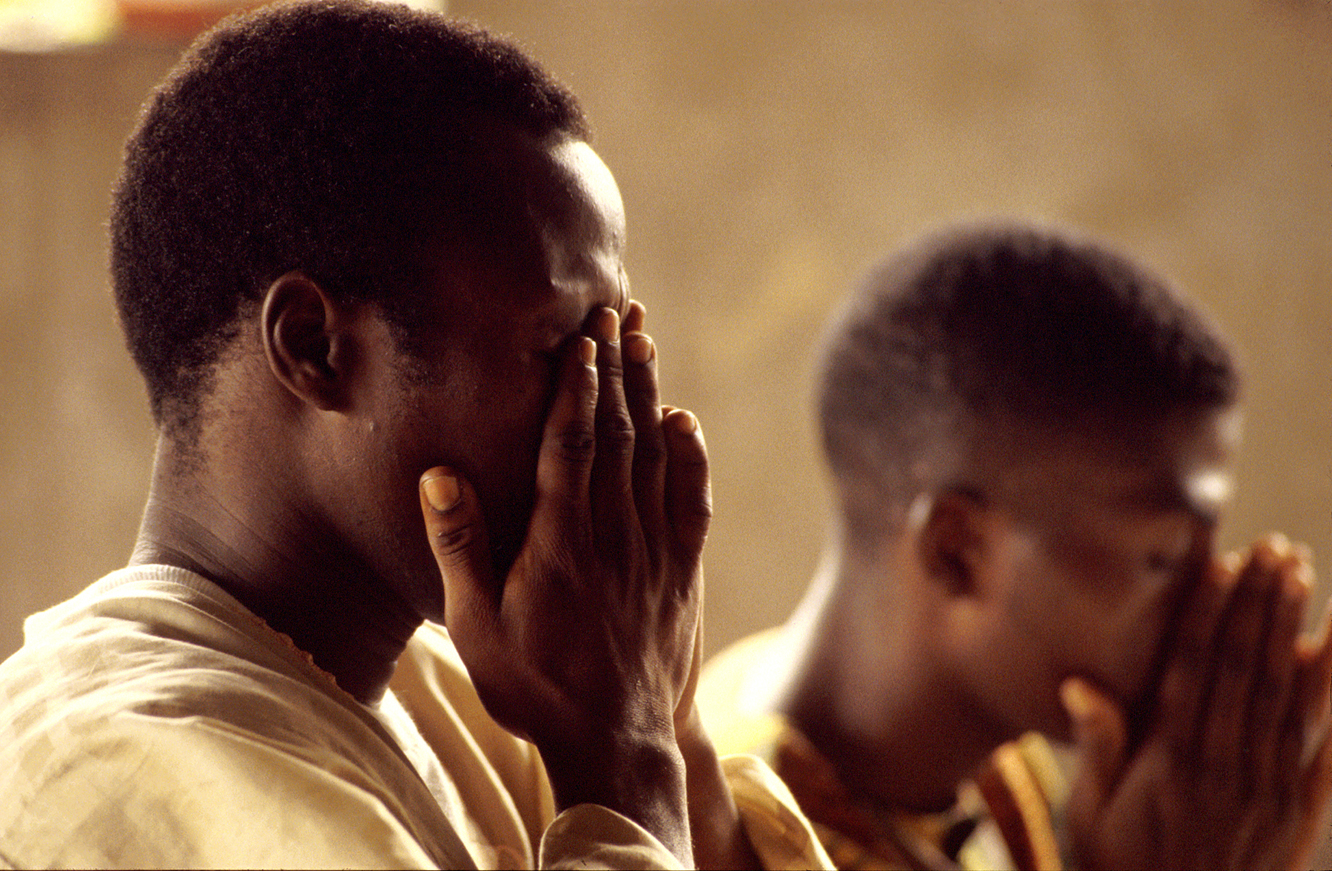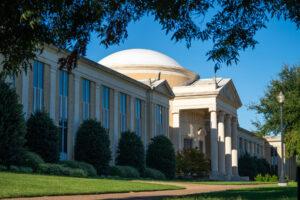
RICHMOND, Va. (BP)–Mohammed Akbar centered himself in his Afghan culture and faith each time he spoke his name. The name his parents gave him literally means “Muhammad is the Greatest,” and attests to a core Islamic identity shared by most in his hometown of Kabul, Afghanistan.
But in 1979, an attack on his homeland by the former Soviet Union shook the foundations of his faith and identity.
“He fled from his home to Iran after the invasion because he said he was not a fighter,” recounted a Southern Baptist International Mission Board administrator who now works in South Asia.
In Iran, Mohammed Akbar soon found himself lost with no home or job in a nation swept up in its own revolution. That same year the Shah of Iran had abandoned his throne and the Ayatollah Khomeini was installing a brand of Islamic government the world had never known.
By December 1979, Iran’s revolutionary police were patrolling streets to enforce Islamic codes of behavior, but Mohammed Akbar was still able to walk into a small cinema and watch a foreign movie — the “Jesus” film.
“Mohammed had never seen anything like this before,” said the IMB representative. “When he got to the part where Jesus hangs on the cross, he told me he was thinking: ‘This Jesus is going to call down fire and destroy all these people [in the story] who are hurting him.’ But Jesus didn’t.
“And when Jesus said, ‘Father, forgive them for they don’t know what they are doing,’ something happened to Mohammed,” the representative recalled. “He told me: ‘At that instant I said in my heart, that’s for me.’
“He had just fled a country where everyone extracted vengeance and called it justice,” the representative said. “He had been searching for answers and saw how Jesus changed everything in an act of sacrifice and love. Christ changed the world and changed Mohammed.”
New attack, old struggle
Twenty-two years later on Sept. 11, 2001, an attack on another homeland plunged the world into another search for answers.
At first, obvious questions rose from the ashes of the terrorists’ attacks on New York’s World Trade Center, the Pentagon in Washington, D.C., and the crash of United Airlines Flight 93 in Pennsylvania. News organizations around the world scrambled to tell how they did it, who they were, and why they did it.
But soon the people moved to a more difficult topic. No one doubted the crisis, but what was in conflict? What lines of loyalty could we draw that would clearly identify the enemy?
Such questions were not confined to the United States. Around the globe, nations and peoples searched for the root of the crisis. Some saw it as a clash of cultures, politics and faith. Several weeks after the attacks in the United States, editors at The (London) Sunday Times acknowledged these core struggles by simply reprinting a 1993 essay by the director of the John M. Olin Institute for Strategic Studies at Harvard University.
“The fundamental source of conflict in this new world will not be primarily ideological nor primarily economic,” predicted Samuel Huntington in his essay, The Clash of Civilizations. “The great divisions among humankind and the dominating source of conflict will be cultural. … The most important conflicts will occur along the cultural fault lines separating these civilizations from one another.”
The Oct. 15 issue of Newsweek took a similar look at this conflict and the roots of anti-U.S. rage in the Middle East and beyond. This issue considered various ways Osama bin Laden and his Al Qaeda terror network have tried to distill a host of economic, cultural and political problems into a concentrated toxin of hatred aimed at Western culture and its perceived flagship, America.
“To say that Al Qaeda is a fringe group may be reassuring, but it is false,” Fareed Zakaria said in the Newsweek article. “The problem is not that Osama bin Laden believes that this is a religious war against America. It’s that millions of people across the Islamic world seem to agree.”
Terrorism or Islam?
President Bush stressed repeatedly that this is a war against terrorism and not Islam. From the start, he and his coalition partners worked hard to draw a clear line between the U.S. military strikes on Afghanistan and the perceived attacks on Islam.
“The enemy of America is not our many Muslim friends, it is not our many Arab friends,” Bush said in a joint session of Congress on Sept. 21. “Our enemy is a radical network of terrorists and every government that supports them.”
Bush’s language is clear, but across the world those steeped in extremist Islamic teachings see things differently.
“[This] had nothing to do with us until the U.S. dropped that first bomb on a Muslim country,” Akbar Ebrahim told the Washington Post in October. Ebrahim is a South African citizen and has never been to Afghanistan, but he supported his 19-year-old son’s decision to go to Afghanistan and fight with the Taliban.
“Now we will have no choice. If one Muslim is attacked, we are all attacked,” he said.
Ebrahim’s views draw from the Muslim belief that there are two worldviews or “houses” in the world, the South Asia IMB representative explained.
A house divided
Islamic teaching divides the world into two parts: Dar al-Islam and Dar al-Harb, the representative said. Dar al-Islam means the House of Islam. Dar al-Harb means the House of War. If a person lives within the House of Islam there is peace, and everything outside is mired in chaos.
These teachings go on to urge Muslims to embrace a holy struggle that will bring everything into submission to God, he said.
“Islam means submission,” he said. “There will be peace when there is total submission, but there is only total submission within Islam.”
Of course, there is a wide spectrum of views on how to achieve submission. But much of the religion’s straightforward teachings and high moral code has engaged the hearts of millions.
There are more than 1 billion Muslims in the world, making it the second-largest religion, with Christianity being the largest. In 41 countries, Muslims form the majority of the population, and in approximately another 30 countries, Muslims account for one of the main religions of the land.
Estimates place the number of Muslims in the United States at about 6 million. Here the religion has seen a 25 percent increase from 1989-98. Last year, Christianity Today estimated that Islam could surpass Judaism by 2015, becoming the second-largest religion in America.
One of the areas of Muslim growth in the United States is among African Americans. Newsweek reported in 1995 that about one-third of the Muslims in the United States are African Americans.
Observers of this growth in the United States believe “Islam’s emphasis on dignity and self-discipline appeals to many men in the inner city, where disorder prevails,” the Newsweek article states.
Searching for identity
In Central Asia, Islam’s promise of order and foundational identity is also appealing in the face of a vacuum of national identity. It has been more than 10 years since Kazakhstan, Kyrgyzstan, Uzbekistan, Turkmenistan and Tajikistan found themselves independent countries.
These newfound nations have had to deal with their own identity crises as leaders tried to sort out what it meant to be Kazakh, Kyrgyz, Tajik, Uzbek and Turkmen.
Each of these people groups has ties to an Islamic past. Many of the region’s leaders worked to apply the cohesion of an Islamic heritage while guarding against Islamic extremism. It’s been a difficult balance to maintain.
“Islam is the world’s only major faith that can truly be defined as political,” explains Mary Weaver in her book, “A Portrait of Egypt: A Journey Through the World of Militant Islam.”
In much of Islamic extremism there is no separation between church and state. The world is moving to a time where there is just Shariah, or Islamic law — a code of honor, a system of jurisprudence and an all-encompassing way of life, she notes.
An IMB worker in the Middle East added that Islam teaches that man’s problem is not knowing how to walk in obedience to God.
“So what’s the answer? Islam would say it’s knowledge. Knowledge of how to live within one’s family and one’s culture,” the worker said. “And what you have is a very regulated, high moral system of living.”
Value Islam
Most Muslims do not take on a radical view of Islamic teachings, he said. “One scholar I know says this huge class of people believe in ‘Value Islam.’ They believe in Islam because of its high values for living in family and in community.
“When you approach it this way, it allows Christians to speak of their own values of living,” he observed. “It also allows us to speak of our heavenly values which Jesus embodied as he taught us God’s ways.
“We then have a way to speak about the matchless, marvelous mercy of God and how he graciously took on human flesh and changes our world and who we are.”
But those who hold to an extreme view of Islam have another kind of revolution in mind. Muslim extremists see the modern nation-state standing in the way of all Muslims uniting. In this interpretation of the Koran, there is freedom to strike out at anything that holds Islam back from being an Islamic republic.
These views started to spread with the creation of the Muslim Brotherhood in Egypt in 1928. Writings from the brotherhood’s leaders drew a much broader circle around the House of War, the IMB worker said.
“Before this time most Muslims would have identified people from the Jewish and Christian faith as quasi-House of Peace. But now these Islamic teachings have spread from the Middle East, and you now hear people in Pakistan and Indonesia identifying everything that is not Muslim as ‘House of War.'”
Fertile soil
This kind of extremism finds its best soil in repressive lands. This type of extremist preaching frees followers to strike out, the IMB worker said.
“Political Islam hinges not just on ideology, but on the political character of the regimes in power,” explains Graham Fuller in an article for Current History. “Political Islam flourishes under certain conditions: political repression, economic hardship, and social grievances.”
“Muhammad said, ‘my people, rightly guided will never suffer defeat,'” explained the IMB worker.
“Well, put yourself in the shoes of a lower middle-class person in many Middle Eastern countries where life just seems to get worse. Something is wrong and in most of these countries there is one or more underground, political organizations that say, ‘Islam is the answer.'”
New rules
Western evangelicals have a different answer, the South Asia worker noted.
“Jesus changed everything,” he said. “From the start, some expected him to destroy Roman tyranny, but he didn’t. Instead, he destroyed the tyranny of sin.”
Mohammed Akbar saw this change when he gave his life to Christ after seeing the Jesus film. He clearly saw how his relationship with Jesus swept away all other issues of culture and politics, the IMB worker said.
“This guy went on to change his name to Akbar al-Masiih,” he said. “That means ‘The Messiah is Greatest.’ As an Afghan, that’s a brave thing to do.
“When he tells you his name, you know where he stands.”
–30–
Reprinted from The Commission magazine, published by the Southern Baptist International Mission Board. For more information about Muslims and Muslim evangelism visit the IMB website “Beyond the Wall, Sharing the God of love with Muslims” at http:\btw.imb.org. (BP) photo posted in the BP Photo Library at http://www.bpnews.net. Photo title: SOLACE IN THE SAVIOR.

















